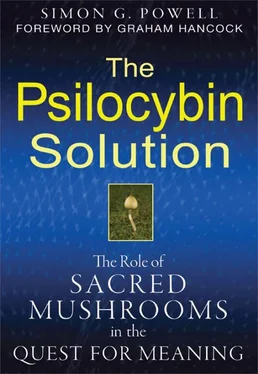Call it Nature or call it reality, either way they are but small words for an immense process that flows inexorably onward. Whatever one’s preferred term, it most certainly is a process, a word whose Latin roots mean “to advance” or “move forward,” and there can be little doubt that reality is, at heart, a singularly vast process that has been running nonstop for some fourteen or so billion years. Not bad. Pretty impressive, in fact.
So what? you might ask. Well, one of the prime functions of this book is to explore and hopefully elucidate the ultimate point of this creative but fatal reality we find ourselves in. To put it bluntly once more, are we biologically woven into a pointless accident, or is reality somehow directed? This is quite some question, perhaps the most profound we can ask in our short earthly sojourn, and one we know to have crossed Einstein’s astute mind. Consider, for example, a famous remark attributed to Einstein in which he claimed that the most incomprehensible thing about our Universe is its comprehensibility. What he meant to convey by this rather sublime assertion (of which there are many paraphrased versions) is that it is truly astonishing that Nature makes sense, whatever part of it we care to study. Law and order are everywhere, whether in the domain of physics, chemistry, biology, or cosmology. Moreover, Nature has somehow conspired, through a process of organic evolution, to build biological brains endowed with minds capable of comprehending physical, chemical, biological, and cosmological phenomena. Why? Why exactly should Nature be that way? Why should the Universe be endowed with the creative capacity to construct millions of spiral galaxies and millions of delicate spiral seashells, as well as the human brain with its ability to perceive and understand those things? Could reality have been otherwise?
Whatever the case, should we believe the reality process to be essentially a mindless accident that just happens to be blessed with extraordinary powers of creativity, then we might conceive ourselves to be hapless mortal prisoners entrapped in the process. Or, if we instead believe reality to be purposeful and meaningful in some way, then we might consider ourselves fortunate functional components of the process. Whatever you may have read, let me assure you that this issue has most definitely not been settled. It is neither completely obvious that the Universe is a purely accidental affair nor is it clear that the Universe is purposeful (or at least one can say that the jury is still out). Neither science nor religion—arguably the two dominant strands of thinking that tend to confront the fundamental nature of reality—has absolutely conclusive evidence at hand.
But if we look to science for clues—because science has enjoyed more evident practical success than religion—then clearly over the past three hundred or so years since the time of Newton and the development of classical physics, science has made great headway in elucidating how reality works; not why it works, but how. Because the process of reality is so obligingly comprehensible, science has enjoyed a dialogue with Nature in which operating principles have been ascertained by means of scientific experimentation. In this way, scientists like physicists, chemists, biologists, and cosmologists have acquired a wealth of information concerning the subatomic, chemical, biological, and astronomical aspects of reality and have subsequently built elaborate models detailing them. However, how one interprets the language of Nature, how one translates the data collated by science into a theory about the ultimate nature of reality, is a subjective affair very much up for debate. Thus, our big opening question awaits a satisfactory answer, and Einstein’s killer remains very much on the loose.
At heart, if we wish to know what, if anything, the reality process is really up to, we can do little more than assess all the relevant information revealed by science and all the intuitive wisdom accrued through personal experience, and then attempt to form a viable theoretical overview. Absolute truths, it would seem, are all but inaccessible, and thus the true nature of Einstein’s creator and killer might forever remain a mystery. But, whatever we believe about the reality process, we are, willy-nilly, most definitely all “in it together” whether we like it or not, and it is for this terrifying or wonderful reason that I have taken it upon myself to explore by any means necessary just what it is exactly that is driving reality, whether the driver is blind or has vision.
Before I reveal to you my particular mode of investigation, let us briefly review what most of the science community believe to be the essential meaning of existence. As it is, current scientific thought definitely veers toward a purposeless and mechanistic account of the Universe, an account that is, with all due respect, depressing and devoid of spirit. Although our scientific knowledge of the world reveals its microscopic and macroscopic complexity and highlights the universal mathematical precision of things like physical law, this knowledge has in effect reduced the Universe to a kind of pointless mechanism devoid of high intelligence apart from our own. Everything from a cell to an orchid to the emergence of our species is generally reduced to a set of merely s. Indeed, the more successful a scientist is in reducing whatever facet of Nature he or she is working on to “merely this” or “merely that,” the more warmly is that scientist’s work received. To argue otherwise by, say, suggesting that Nature is purposeful in some way, is to ostracize oneself from mainstream science. Certainly it is the case that nobody will win a Nobel Prize for planting purpose in Nature, despite the uplifting appeal that such an intentional theory of reality would undoubtedly carry.
But is it valid to build a new and overtly optimistic theory concerning the ultimate nature of reality solely because our current theories are not uplifting enough? Obviously not. A new theory like this would represent nothing more than whim, a psychological artifice formulated solely because the consensus truth about reality is perceived to be too gloomy and too unpalatable to swallow. Indeed, to enthusiastically infer, say, that conscious existence has some kind of special purpose in the reality process, that consciousness is somehow at the center of an intentional Universe, smacks of the prescientific beliefs confined to the pages of history books, to a time when supernatural thinking governed human minds. This kind of anthropocentric religious ideology has now been all but crushed by rational scientific thought, which firmly places our kind on a mere satellite circling a mere star among billions. We are no more than the product of evolution, one particular species out of countless millions, whose only real claim to fame is our big brains with their ability to think and direct complex behavior.
Over a few centuries, in particular from the seminal publication of Charles Darwin’s The Origin of Species in 1859 (which can be cited as a definitive turning point in our concepts of humankind’s place in Nature), the ideological pendulum has swung 180 degrees, from a position in which humanity was the crowning glory of creation to a position in which we are but speckish organic bystanders in an essentially pointless universal exercise of physics and DNA-orchestrated biochemistry. Life is accidental, mostly hard, and then you die—a tough fact best swallowed, perhaps, with a large brandy.
To revert to the more ancient view in which life, and in particular human consciousness, is considered to be somehow significant therefore seems completely out of the question, a futile move serving only to stir up false hope in a Universe that basically “just don’t give a damn.” This is especially so if our sole motivation is a dislike of current scientific reasoning. Only if a grand optimistic view of existence were driven primarily by direct conscious experience could it possibly hope to possess validity. And not just wishy-washy conscious experience either. The experience, if it were to bear upon notions of the ultimate nature of reality, would have to be remarkably compelling and potentially accessible to all. It would have to provide incontrovertible evidence that we have some significant role to play in the reality process. But could a direct conscious experience really afford a deep insight into our big question?
Читать дальше










